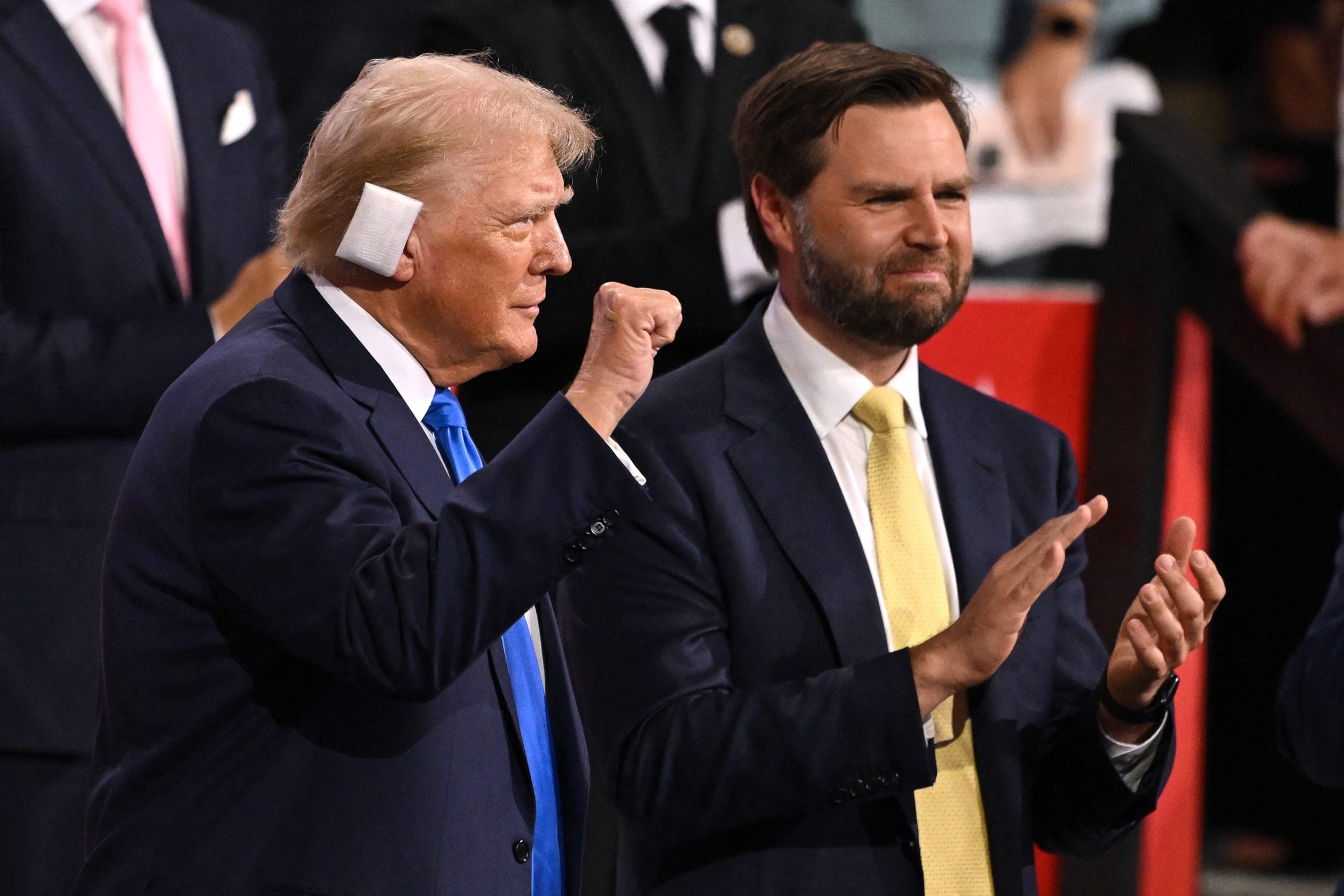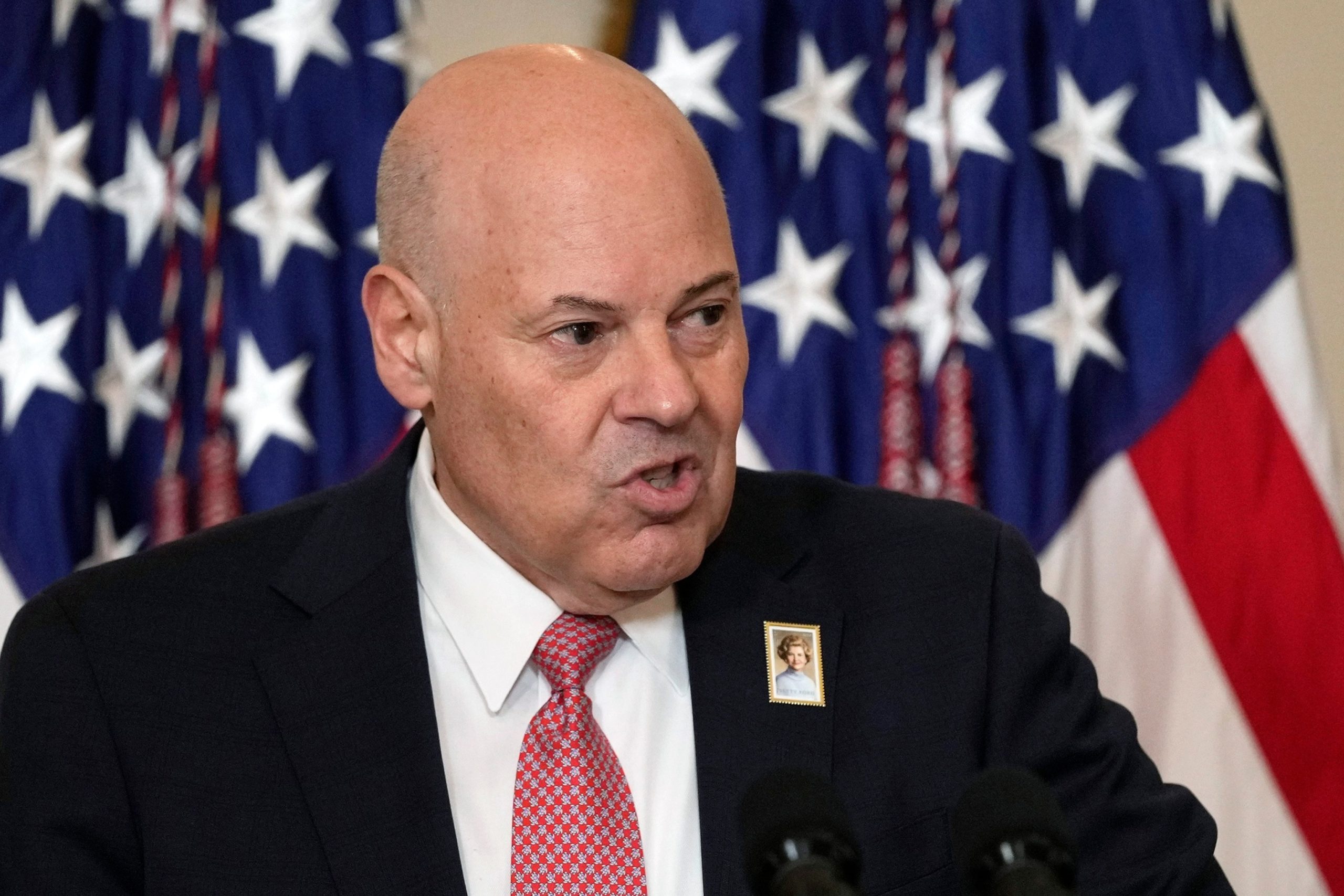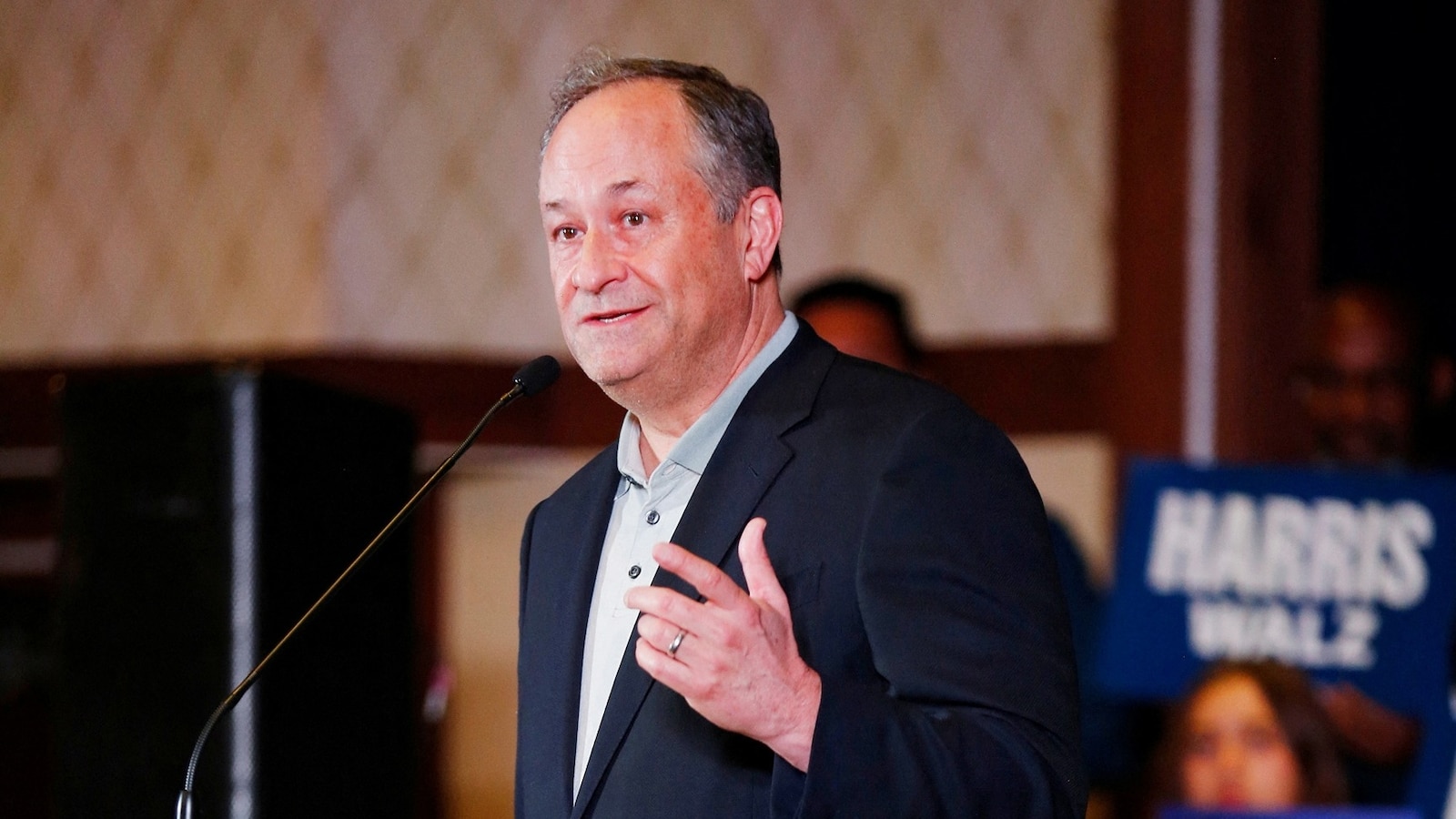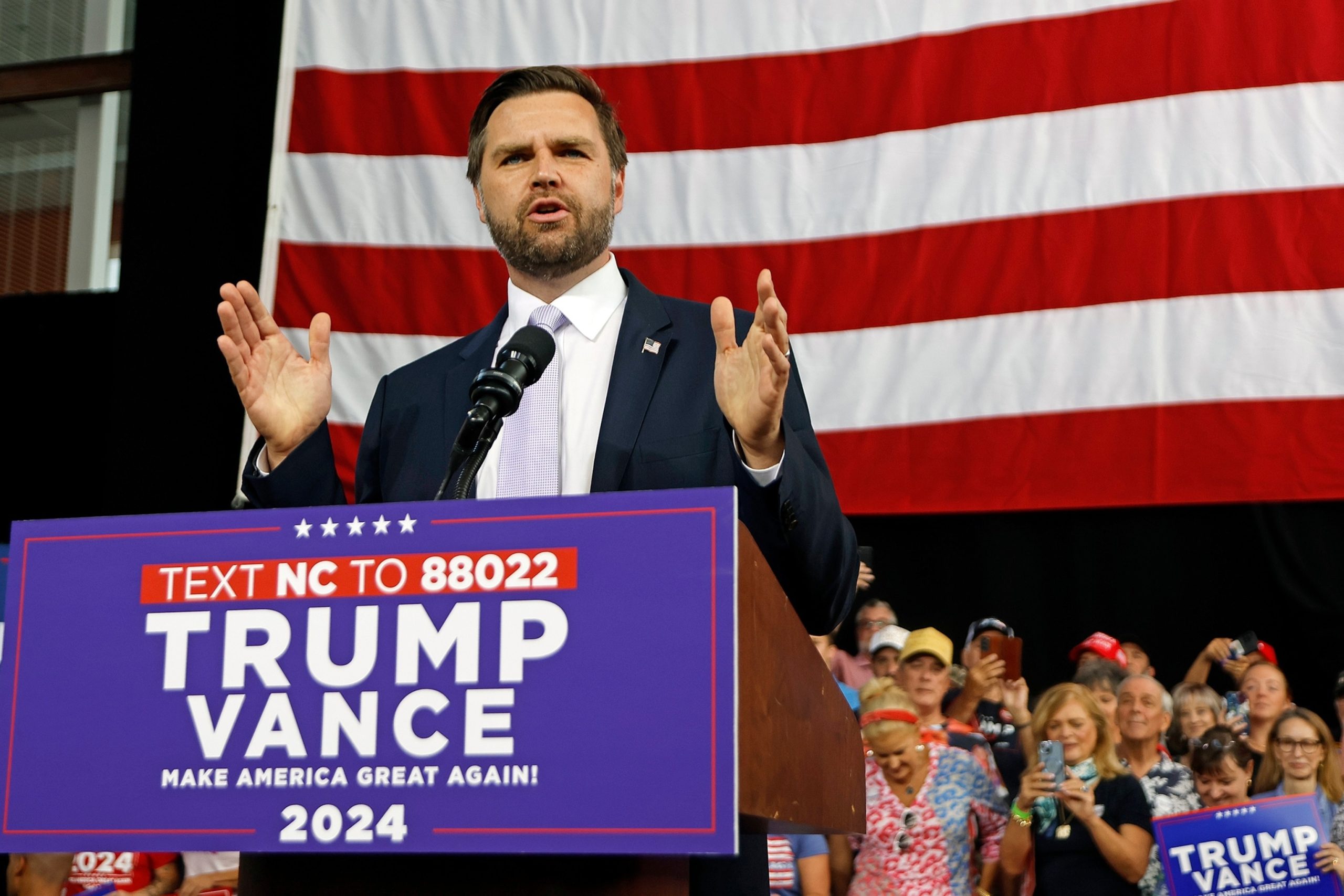Ohio Sen. J.D. Vance’s opposition to more U.S. aid for Ukraine is stoking anxiety among Kyiv’s supporters about sustained U.S. support and Ukraine’s ability to fend off Vladimir Putin’s invasion.
“I do not think that it is in America’s interest to continue to fund an effectively never-ending war in Ukraine,” Vance said during a speech in May, adding “we’ve done more than our fair share.”
Although Vance’s isolationist approach to foreign policy has even vexed members of his own party, he has candidly voiced his skepticism since the earliest days of the conflict.
“I gotta be honest with you, I don’t really care what happens to Ukraine one way or another,” Vance said in February 2022, amid an explosion of bipartisan support for country in the immediate aftermath of Russia’s invasion.
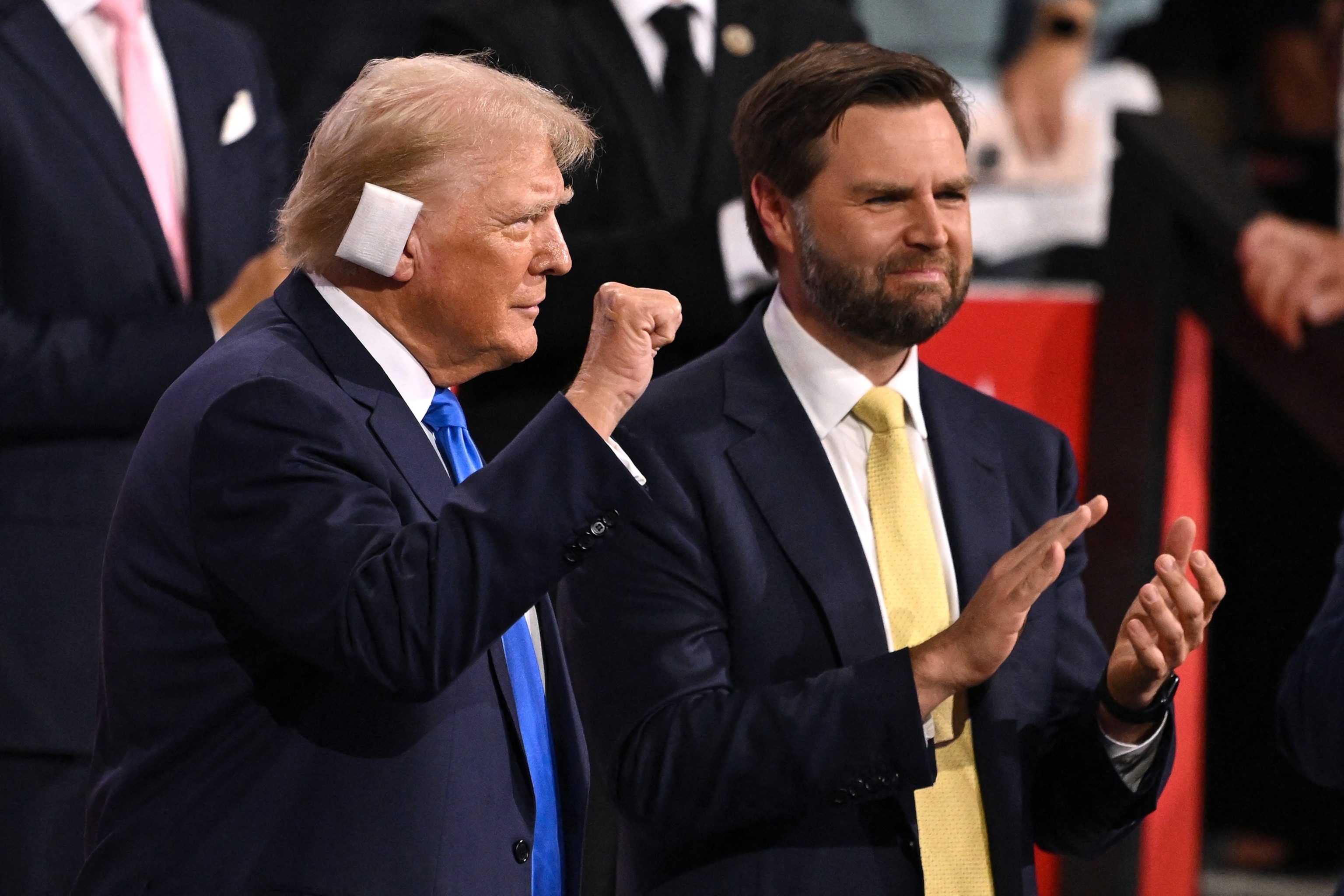
Former President Donald Trump pumps his fist alongside Republican vice-presidential candidate J.D. Vance during the second day of the 2024 Republican National Convention, in Milwaukee, July 16, 2024.
Patrick T. Fallon/AFP via Getty Images
Two U.S. officials and a European official tell ABC News they see Donald Trump’s decision to pick Vance as his running mate as a clear sign the former president intends to double down on his “America First” vision if he wins a second term by disengaging from international concerns.
They expressed concern that if Trump, who has described Ukraine as a burden, is able to cut off aid to the country, Ukrainian troops may be unable to hold current lines and Kyiv’s position at any negotiation table would be severely weakened.
In April, Vance broke with Senate Republican leaders to vote against a foreign aid package that included nearly $61 billion for Ukraine, asserting Moscow’s threat to global stability had been overstated.
“Vladimir Putin is not Adolf Hitler. It doesn’t mean he’s a good guy, but he has significantly less capability than the German leader did,” Vance said in a speech on the Senate floor.
“If Ukraine thinks that it’s getting another $60 billion supplemental out of the United States Congress, there’s no way,” he later told reporters.
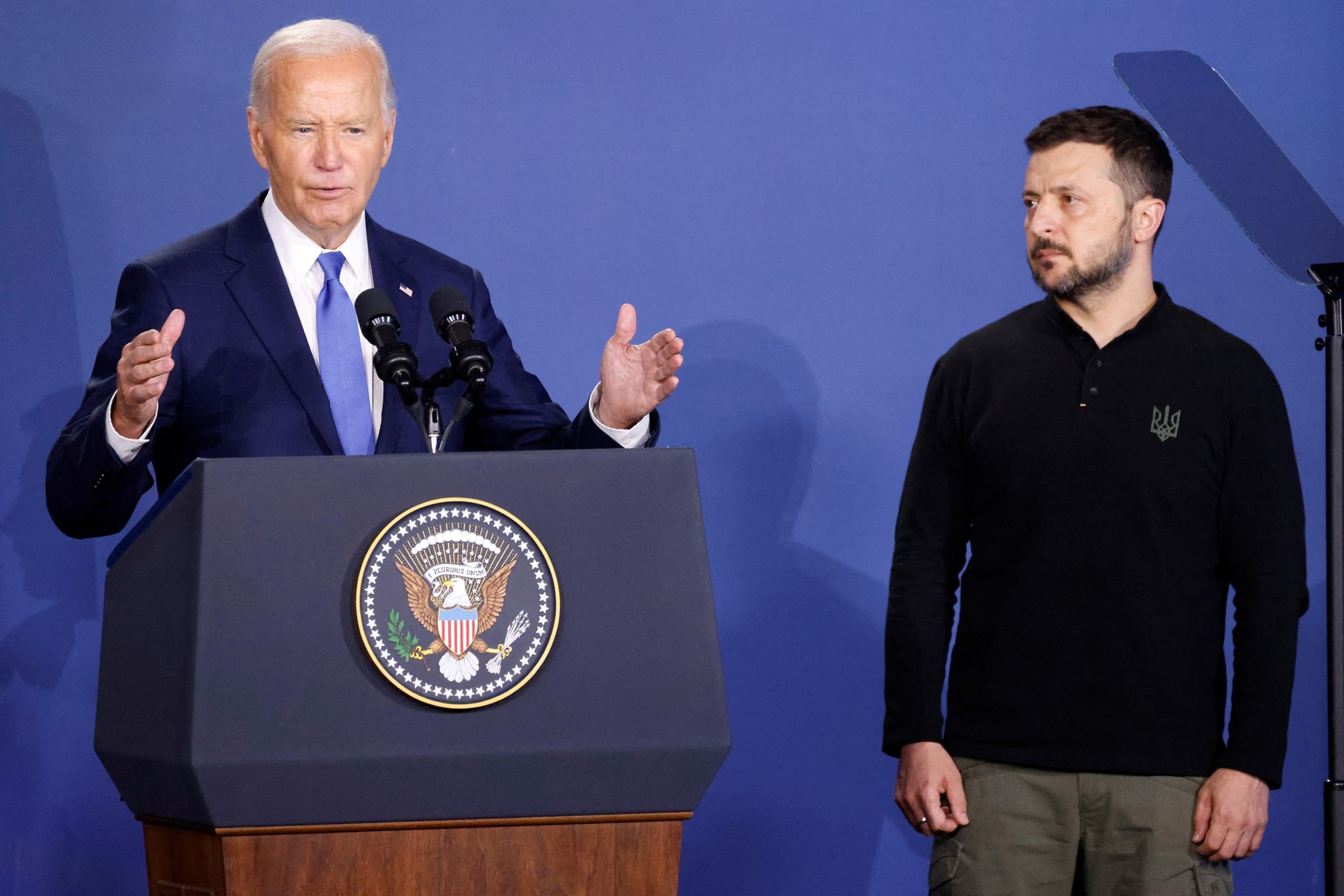
President Joe Biden speaks alongside Ukraine’s President Volodymyr Zelensky during the Ukraine Compact initiative on the sidelines of the NATO Summit at the Walter E. Washington Convention Center in Washington, DC, on July 11, 2024.
Ludovic Marin/AFP via Getty Images
Vance has also defended his pessimistic outlook on Ukraine’s ability to triumph over Russia, calling himself a “realist.”
In an April op-ed in the New York Times titled “The Math on Ukraine Doesn’t Add Up,” Vance argued that the U.S. could not possibly provide enough munitions to Ukraine to turn the tides of the war and called Ukraine’s President Volodymyr Zelenskyy’s goal of restoring the country to its 1991 boundaries “fantastical.”
At the Munich Security Conference in February, Vance also said that focusing on Ukraine was distracting Washington from confronting other challenges such as China.
“There are a lot of bad guys all over the world. And I’m much more interested in some of the problems in East Asia right now than I am in Europe,” Vance said.
But despite Trump and Vance’s apprehension on assistance for Ukraine, many of their fellow Republicans have so far remained steadfast in their support.
In April, South Carolina Republican Sen. Lindsey Graham, a hawkish conservative, called Vance’s arguments against assistance for Ukraine “garbage.”
“I challenge J.D. Vance to go to Ukraine and get a briefing from the Ukrainian military and talk to the Ukrainian people,” he said in a televised interview.
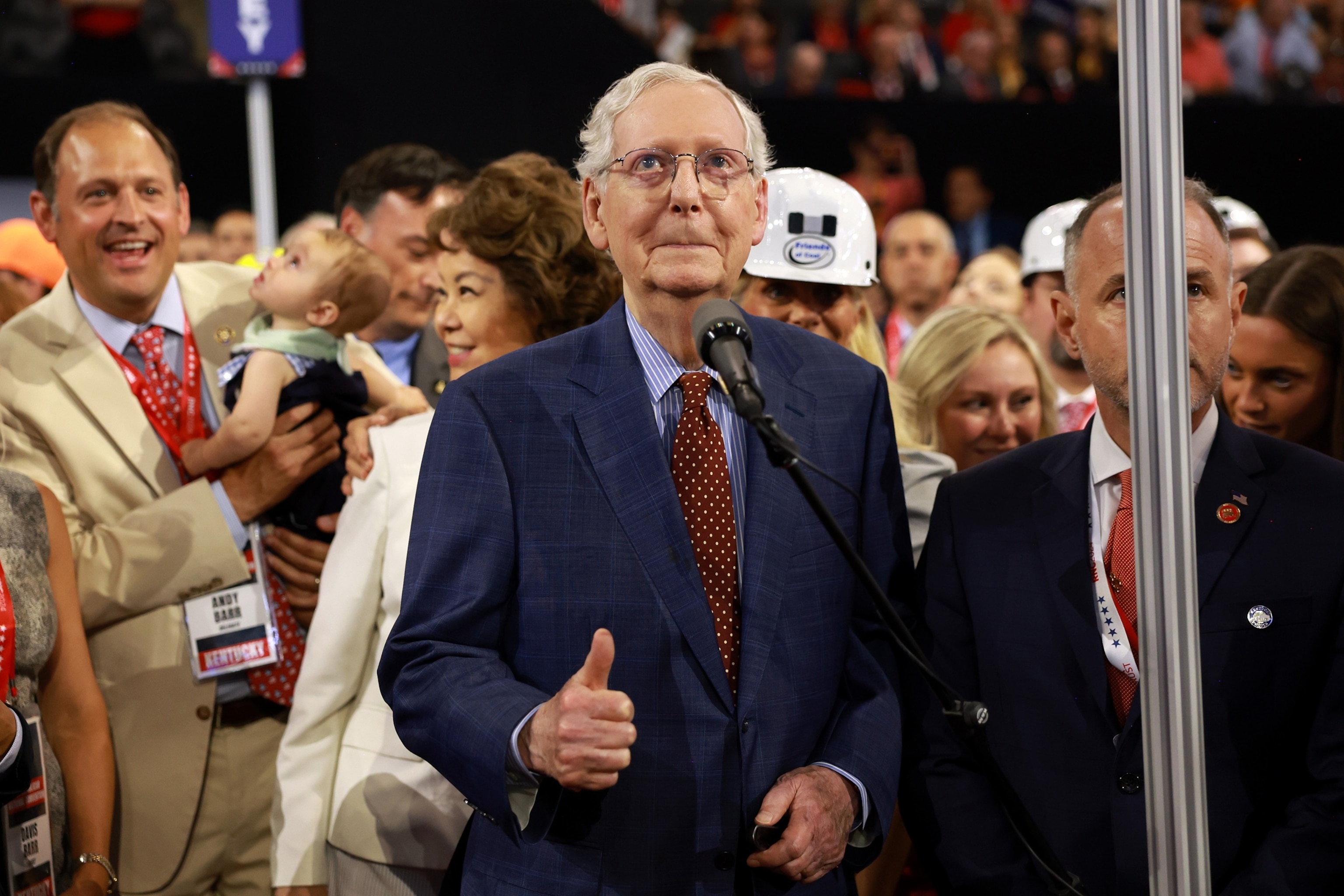
Senate Minority Leader Sen. Mitch McConnell casts the vote for Kentucky on the first day of the Republican National Convention at the Fiserv Forum on July 15, 2024 in Milwaukee, Wisconsin.
Joe Raedle/Getty Images
In an interview with Punchbowl News earlier this month, Senate Minority Leader Mitch McConnell — one of Ukraine’s most influential allies on Capitol Hill — predicted that future support for Kyiv would depend not only on the outcome of the election in November, but also on whether Ukraine makes progress on the battlefield in the coming months.
“The conflict over the summer and how it is perceived to turn out is extremely important in answering the question inevitably coming up in democracies — can they win?” McConnell said.
Vice President Vance’s recent opposition to providing US aid to Ukraine has raised concerns for the future of Kyiv and its relationship with the United States. The decision to withhold aid comes at a critical time for Ukraine, as the country continues to face ongoing conflict with Russia and struggles to rebuild its economy and infrastructure.
Vice President Vance’s stance on Ukraine aid has been met with criticism from both Democrats and Republicans, who argue that cutting off assistance to the country could have serious consequences for its stability and security. Many believe that US support is crucial for Ukraine’s efforts to defend itself against Russian aggression and work towards a more democratic and prosperous future.
The decision to withhold aid also raises questions about the Trump administration’s commitment to supporting Ukraine in its struggle against Russian influence. President Trump has faced criticism in the past for his cozy relationship with Russian President Vladimir Putin, and some fear that cutting off aid to Ukraine could be seen as a concession to Moscow.
In response to Vice President Vance’s opposition to aid for Ukraine, Ukrainian officials have expressed their disappointment and concern. They argue that US support is essential for their country’s security and development, and that cutting off aid could undermine their efforts to build a stronger and more stable nation.
The situation in Ukraine is already precarious, with ongoing conflict in the eastern regions of the country and economic challenges that have left many Ukrainians struggling to make ends meet. Without US assistance, Kyiv may find it even more difficult to address these pressing issues and move towards a more secure and prosperous future.
As the debate over US aid to Ukraine continues, it is clear that the stakes are high for both countries. The outcome of this decision could have far-reaching implications for the future of Kyiv and its relationship with the United States, as well as for the broader geopolitical landscape in Eastern Europe. It remains to be seen how Vice President Vance’s opposition will ultimately impact US-Ukraine relations, but one thing is certain: the future of Kyiv hangs in the balance.
